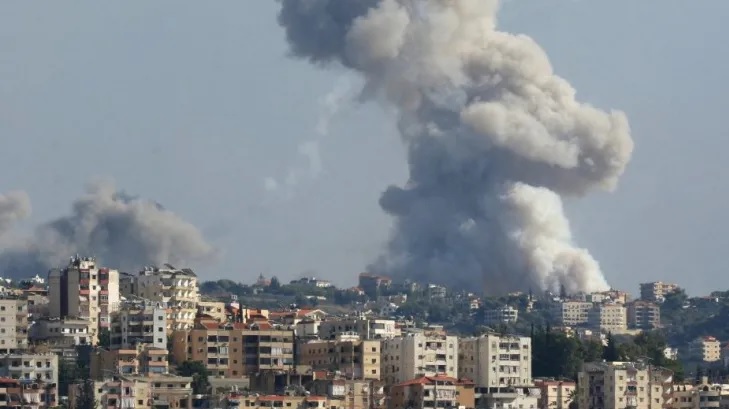The conflict between Israel and Hezbollah has significantly escalated, leading to a surge in casualties and widespread displacement. This long-standing dispute has seen a dramatic rise in violence over recent weeks, with both sides experiencing heavy losses.
Current Situation:
Tensions surged when Israeli airstrikes targeted Hezbollah positions in Lebanon, resulting in more than 500 deaths and approximately 1,650 injuries. These attacks have forced over 100,000 people to flee their homes, creating a severe humanitarian crisis. Israel’s military operations have focused on dismantling Hezbollah’s infrastructure, particularly in southern Lebanon.
In retaliation, Hezbollah has fired numerous rocket barrages into northern Israel, hitting both civilian areas and military installations. The group has launched over 8,000 rockets since the beginning of the conflict, causing widespread destruction and significant casualties. In Israel, 33 people, including 10 civilians, have been killed as a result of Hezbollah’s attacks. The relentless rocket fire has forced around 60,000 Israeli civilians to evacuate their homes.
Impact on Civilians:
Civilians on both sides are bearing the brunt of this conflict. In Lebanon, hospitals are overwhelmed as they struggle to care for the injured amid the ongoing Israeli airstrikes. Many schools and universities have been repurposed as shelters for displaced families, while Lebanon’s economy falters due to business closures and disruptions to essential services.
In northern Israel, the constant threat of rocket fire has created an atmosphere of fear and insecurity. Civilians live under the shadow of potential attacks, with many taking refuge in bomb shelters. The psychological and emotional toll on families and communities on both sides is severe, as the conflict tears lives apart.
Geopolitical Implications:
The Israel-Hezbollah conflict carries serious geopolitical ramifications. Iran’s backing of Hezbollah adds further complexity to the situation, with Tehran issuing warnings of “dangerous consequences” if Israel’s attacks persist. This raises concerns that the conflict could escalate into a broader regional war, drawing in other countries from the Middle East. The international community remains alarmed by the possibility of this conflict spiraling into a larger, destabilizing event.
Death Toll from Israeli Airstrikes in Lebanon Reaches 274
Potential Global Impact:
A prolonged conflict between Israel and Hezbollah could have profound global consequences. The Middle East could face increased instability, leading to new waves of refugees and further humanitarian crises. Economic repercussions, including disruptions to oil supplies and increased market volatility, could also be severe.
The conflict may also strain international relations. The United States, a key ally of Israel, could be drawn deeper into the situation, while countries like Russia and China may seek to expand their influence in the region.
Final Thoughts:
The escalating conflict between Israel and Hezbollah is a grim reminder of the precarious state of peace in the Middle East. The human toll is already immense, with thousands of lives lost and many more affected. The international community must act swiftly to de-escalate the situation and prevent further suffering. Left unchecked, this conflict could reshape the geopolitical dynamics of the region and pose far-reaching challenges to global stability.




